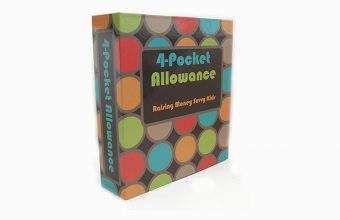Now that tax season is underway, it’s time to look over your financial records from last year and determine your options for reducing your tax liability. You should pay what you owe, of course, but why pay more than you need to?
We’ve also just passed the season for that well-known Canadian tax deduction: the registered retirement savings plan (RRSP). In the first two months of the year, many Canadians rush to their financial advisors or banks to put money into their RRSPs to get a tax deduction for the previous tax year.
There’s no doubt: Contributing to an RRSP is a great way to lower your tax bill. But the tax code is large, and you might not be aware of all the other options you may have to pay less income tax. This year, go beyond the common tax breaks you know and consider some of the others you might be eligible for.
Children’s arts amount (Line 370)
If you pay for your children to be involved in developmental, cultural, or artistic activities, you might be eligible for a tax credit. According to Mike Oseen, Senior Tax Manager at Grant Thornton LLP, this tax credit means effectively 15% of the activity fee is treated as tax paid.
For the children’s arts amount, you can take a credit of up to $500 per child for the cost of registration or membership in the activity. This applies to your spouse’s child, or your common-law partner’s child, as well as your own.
Children’s fitness amount (Line 365)
Not only are you encouraged to boost your children’s achievements in the arts, but you are also encouraged to help your child live healthier. The children’s fitness amount is a tax credit that applies to fees paid for participation in sports or some physical activity. Once again, you can claim up to $500 per child, for your child or your partner’s child.
Home-buyers’ amount (line 369)
Did you buy a home last year? If so, you might be eligible to claim up to $5,000 as a tax credit. To do so, you have to meet both the following conditions:
- The home you bought qualifies for the credit. (Find out if you have a qualifying home.)
- You didn’t live in another home you or your partner (spouse or common-law) owned last year or in any of the four preceding years.
The idea is to encourage first-time home buyers. If you have a disability, though, you don’t have to be a first-time buyer. (See persons with disabilities.)
Public transit amount (line 364)
Your efforts to be a little greener as you get to work can result in another tax advantage. If you buy monthly or annual passes for travel within Canada on qualified public transit, you can get a tax credit for what you spent last year.
Moving expenses (line 219)
Did you move to be closer to work? If so, you might be able to get a tax break for your expenses. You could be eligible for this advantage if one of the following applies to you:
- You moved to be closer to your employer
- You moved to carry on a business at a new location
- You moved to study as a full-time student at a qualified post-secondary institution
You do have to move at least 40 kilometres closer to your new workplace (either a different location of your current employer or a new employer) or school to qualify, though. Eligible moving expenses include packing and moving your household goods, the cost of selling your old home, and utility hook-ups and disconnections.
Moving expenses are a little different from the other breaks mentioned in that they are a tax deduction as opposed to a tax credit (they reduce the amount of income you pay tax on, whereas a tax credit reduces the amount of tax you owe).
Consider your situation and think about what you spent last year. Check with the Canada Revenue Agency or a trusted tax preparer if you aren’t sure if you are eligible for these tax breaks.
More tax-time tips:
Get more smart tips for tax time
Get more FREE tips and tools on money, health and family
Original source: Five tax breaks you may not know about, written by Jim Yih for BrighterLife.ca Sun Life Assurance Company of Canada, 2013.
Tagged under: Money,financial advice,tax breaks,tax season,filing taxes,tax tips
Category: family-finance






